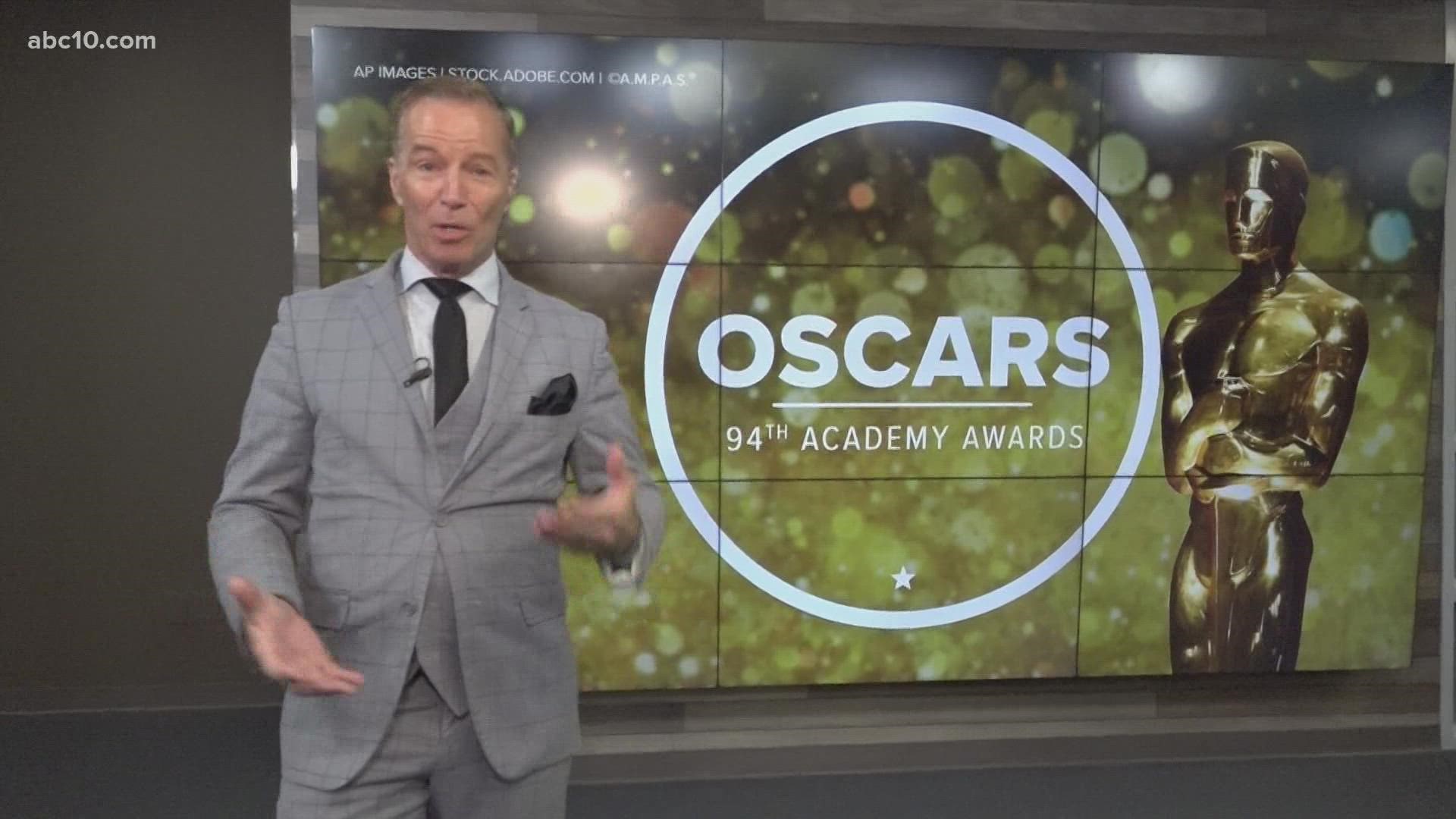CALIFORNIA, USA — Roughly seven years after a hashtag campaign sparked by April Reign, the word seemingly on many people's minds for the 94th Academy Awards is "diversity."
The Oscars were lambasted back in 2015 for a lack of diversity in all four acting categories. Only white actors were nominated, which prompted the Twitter campaign #OscarsSoWhite. Shawn Edwards, a Black film journalist and movie critic, said the hashtag campaign is one of the greatest Twitter activist campaigns ever, but noted that the hashtag didn't really take off until the next year.
"It really picked up steam in 2016, because the academy did the same damn thing the very next year,” Edwards said, adding that people complained about the lack of diversity and representation at the Oscars.
It sparked again in 2020 when Cynthia Erivo, who portrayed Harriet Tubman in "Harriet," was the only nominee of color in the acting categories.
"The problems with the Oscars in the past, 'Oh, these are movies that we don't go see or #OscarsSoWhite, no integration, no equality, no diversity, no inclusion -- these are all real problems," said ABC10 entertainment reporter Mark S. Allen.
However, there has been progress, which can be seen in the nominees for Best Actor.
"Out of the five nominees, three of them are people of color... that's different. That's different, and that, I think, is the industry and people who vote intentionally recognizing that they have a responsibility to look beyond people who look like themselves and really value performances that take us into a different space and a different sense of identity," said Robin Russin, professor of theater and digital production at UC Riverside.
Adding in the monumental wins that "Parasite" had in 2020 for Best Picture and Chloe Zhao's Best Director win in 2021, Edwards said he's elated looking at the Oscars this year because of the progress he's seen.
"You know, it could be going backwards or it could stall out, but nah. I'm very happy because you can visibly see... the landscape changing,” Edwards said.
However, #OscarsSoWhite might not be able to take all the credit for that landscape change. Edwards said there's been a lot of people working behind the scenes to bring change.
"This fight has been going on for decades, so you can't give all the credit to the hashtag. I mean, you've had organizations like the NAACP, who have been fighting for these these changes for decades, you've had a lot of other people behind the scenes who have been fighting for these changes for decades,” Edwards said.
He said that Cheryl Boone Issacs shook up the industry, bringing in changes both in front of and behind the cameras once she was re-elected president of the Academy of Motion Picture Arts and Sciences.
According to Catherine Benamou, professor of film studies at UC Irvine, the academy invited a lot of Black, Indigenous and People of Color (BIPOC) to join their ranks.
The academy itself is compromised of industry professionals from all parts of the filmmaking process, and Edwards says there's a need for more diversity in the entirety of the filmmaking process. He noted that, for the movies in the periphery of #OscarsSoWhite, there weren't many roles that, for example, Black women, had in those years that would have qualified for a nomination.
However, he said having more diverse people in the entire filmmaking process could change that and its a change that's been picking up steam.
“You also have seen a lot more people of color involved in the filmmaking process and have been allowed to tell their stories. That's helped. Another thing that's helped diversity (that) doesn't get a lot of credit, is you really do have to give the streamers a lot of credit,” he said.
Edwards said the old studio system was "horrible at diversity," referring to studios like Warner Bros., Paramount, 20th Century Fox and more.
“They have had to come to the reality that diversity matters because streamers, like Netflix and Disney+ and Apple TV and Amazon Prime, have done a much better job at really pushing diversity forward. So now... those studios are sort of like following suit,” Edwards said.
The concept of criticizing the Oscars for a lack of diversity might irritate some who say the Oscars are about recognizing the best in the industry regardless of the color of their skin or background.
Edwards said he's not a fan of forcing inclusion, mandates or quotas. He's simply interested seeing things the way he says they always should have been.
"Things was wrong. They were wrong for a really, really long time," he said.
He said that perception eventually became a norm, and that when people try to change the norm, there can also be resistance.
“That's why you get people yelling, 'Why does it always have to be about race?' Because whenever you have to fix something that's been broken for a long time, it's either painful or expensive,” he added.
RELATED: Why is digital streaming raking in Oscar nominations? Because they're going where others won't
WATCH ALSO:

















